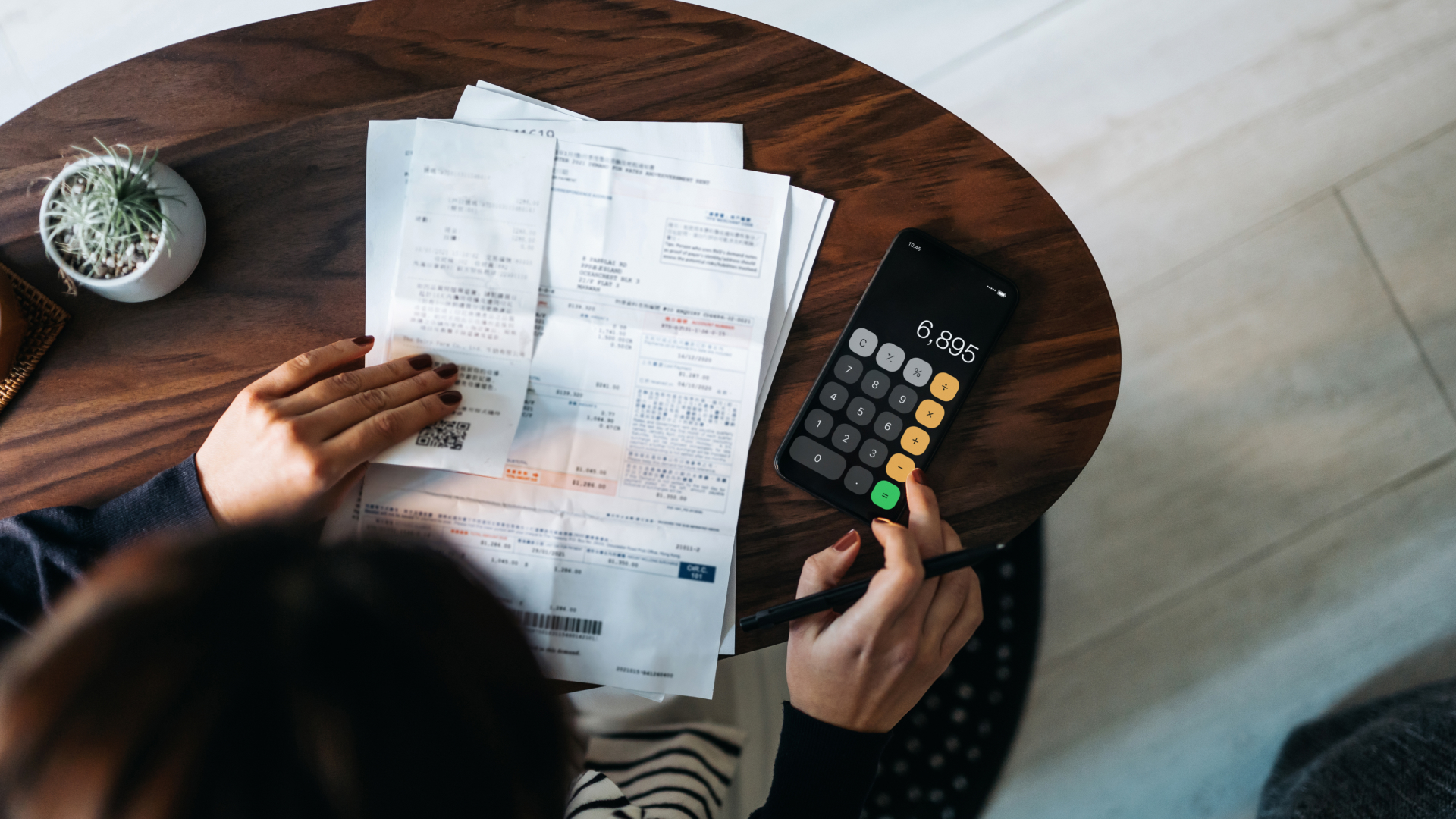The Most Common Mistakes People Make On Their Taxes, According to Experts
"There is no shame in asking for help on your taxes."


Taking the time to file your taxes every year is hardly anyone's idea of a good time. In fact, according to the Pew Research Center, a majority of Americans dislike doing their taxes; a reported 32 percent take it one step further and say they're actively dreading them, according to a recent survey by Credit Karma.
Whether you're laboriously looking over a year's worth of financial statements or carefully imputing deductions, it's relatively common for people to make more than a few mistakes when doing something as universally disliked as filing your taxes.
"The most common mistakes people make when doing their taxes are usually the most simple ones," Courtney Alev, consumer financial advocate and head of Tax at Credit Karma, tells Marie Claire.
"And these mistakes can be costly," Alev adds. "A mistake can lead to getting a smaller refund than what you’re owed, paying more than you owe, or a delayed refund."
From making simple math mistakes to providing incorrect bank information, here are some of the most common mistakes people make when filing their taxes—and how to avoid them.
1. Not Talking or Asking Questions About Your Taxes
"Talking about finances openly can help ultimately reduce the stigma around money for many people, whether that means discussing with friends and family, or following along with strangers on social media," Alev explains. "The more common it is to hear others’ lessons learned or helpful tips, the more attention people may pay to their own financial health."
According to one 2023 survey, 62 percent of respondents say they don't talk about money, including their own spouse. According to Alev, refusing to learn or talk about money creates a "ripple effect" that can have "lifelong consequences."
"Not asking for help or guidance around your finances can lead to often unintentional poor choices with money, or the inability to reach your financial goals," she adds.
2. Filings Your Taxes Too Early
According to the Internal Revenue Service (IRS) website, while people should make sure not to file their taxes too early, "they also should not file prematurely."
"People who don't wait to file before they receive all the proper tax reporting documents risk making a mistake that may lead to a processing delay," the site continues.
"The IRS opens tax season in last January. If someone is using personal tax preparation software or the IRS Free File system, it may accept the return, but it won't be processed until the season opens," Jill M. Flinton, a certified public accountant who has helped individuals and small businesses restructure their finances for over 10 years, tells Marie Claire.
Get exclusive access to fashion and beauty trends, hot-off-the-press celebrity news, and more.
"Anyone with Earned Income Credits (EIC) or Advanced Child Tax Credits (ACTC) will have refunds held up for extra processing until at least mid-February, due to laws requiring those to be held for longer," Flinton adds. "The risk of filing 'too early' is that another document arrives after you have filed your tax return."
3. Entering Key Information Incorrectly
Alev tells Marie Claire that one of the most important steps a person can take when filing their taxes is taking the time to "get yourself organized."
The error rate for tax returns that are filed on paper is 21 percent, according to the IRS.
"Gather all of your tax-related documents before you sit down to file your taxes," she says. "It may sound obvious, but you’d be surprised how much time you can save if you have all of the necessary paperwork in front of you when you go to file."
According to the IRS, the error rate for tax returns that are filed on paper is 21 percent, so if you do make a mistake you're not alone.
“There’s no need to panic,” Laurie Kazenoff, a partner and co-chair of the tax department at Moritt Hock & Hamroff, told CNBC Make It in 2019. Most "small issues" can be fixed quickly, she added.
4. Making Math Mistakes
Look, not everyone is "math minded." (Hi. It's me. I'm "everyone.") So it's more than understandable that when tallying deductions, income, expenses and other taxable items, people will make a math mistake or two (or 10).
"The best way to avoid math mistakes is to use a tax software program," Flinton says.
"If you really want to do them by hand—really not recommended—use a calculator with a paper tape that prints out," Flinton adds. "Also, do the calculations several times to make sure the results are the same."
5. Providing Incorrect Bank Numbers
Choosing direct deposit when filing your taxes ensures that you will get your refund as quickly as possible. Unfortunately, it's not uncommon for people to use incorrect routing and account numbers, which can cause a significant delay.
If, again, you're not much of a numbers person, you can always ask the help of a local certified public accountant (CPA) or other financial adviser.
"You should definitely use a CPA when your tax situation becomes more complicated than you feel comfortable doing yourself," Flinton says. "Those with gig jobs or small businesses should use a CPA, EA, or other tax professional to ensure all the gig or business activity is being appropriately recorded."

One-third of people dread doing their taxes each year, according to a survey by Credit Karma.
6. Correctly Identifying Proper Credits or Deductions
Tax credits and deductions exist for the benefit of the taxpayer, but they can also be confusing and lead to mistakes when you're trying to figure out things like the Earned Income Tax Credit, Child Tax Credit and more.
According to the IRS website, the Interactive Tax Assistant can help taxpayers determine if they're eligible for specific credits and deductions.
"Tax software will calculate these credits and deductions and include any required forms and schedules," the website states. "Taxpayers should Double check where items appear on the final return before clicking the submit button."
And again, as Linton states, if you're feeling overwhelmed or like you are unable to take advantage of all the credits and deductions you're owed, don't hesitate to reach out for help.
"There are many deductions that small business owners can take, but many don't know about them," she adds. "Partnerships, Corporations, and Fiduciary returns—like trusts or estates—should always use a CPA or EA to prepare their tax returns."
7. Not Signing All The Necessary Forms
"Don’t rush through the tax preparation process," Alev says. "It’s important to give yourself plenty of time to minimize stress and reduce the risk of errors. The best strategy is to create a focused, uninterrupted environment so you can concentrate while you file."
More often than not, mistakes can be avoided by slowing down, taking your time and double-checking all of your paperwork, whether it's physical or electronic. And as Alev notes, there's nothing wrong with reaching out to an expert and asking for help.
"There is no shame in asking for help on your taxes. You may be surprised by how few people feel confident filing their taxes on their own, and end up hiring help from a CPA, using expert assistance provided alongside tax software, or enlisting help from a friend or family member when filing," Alev continues. "Asking for help can help give you the confidence that you’re filing accurately."

Danielle Campoamor is Marie Claire's weekend editor covering all things news, celebrity, politics, culture, live events, and more. In addition, she is an award-winning freelance writer and former NBC journalist with over a decade of digital media experience covering mental health, reproductive justice, abortion access, maternal mortality, gun violence, climate change, politics, celebrity news, culture, online trends, wellness, gender-based violence and other feminist issues. You can find her work in The New York Times, Washington Post, TIME, New York Magazine, CNN, MSNBC, NBC, TODAY, Vogue, Vanity Fair, Harper's Bazaar, Marie Claire, InStyle, Playboy, Teen Vogue, Glamour, The Daily Beast, Mother Jones, Prism, Newsweek, Slate, HuffPost and more. She currently lives in Brooklyn, New York with her husband and their two feral sons. When she is not writing, editing or doom scrolling she enjoys reading, cooking, debating current events and politics, traveling to Seattle to see her dear friends and losing Pokémon battles against her ruthless offspring. You can find her on X, Instagram, Threads, Facebook and all the places.